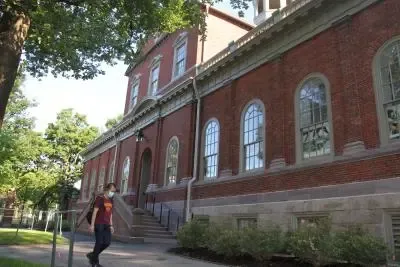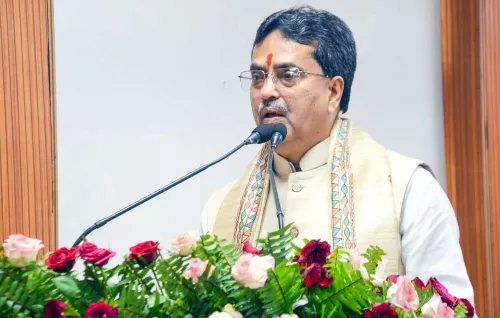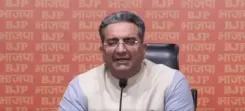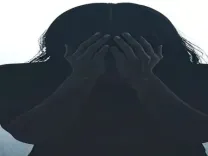Is Trump’s Ban on Harvard a Threat to Dreams and Futures?

Synopsis
Key Takeaways
- Raghav Chadha stands in solidarity with Harvard and its international students.
- The Trump administration's ban raises concerns about academic freedom.
- Harvard is taking legal action against the federal government.
- The decision affects over 7,000 international students.
- Political pressures are increasingly impacting educational institutions.
New Delhi, May 23 (NationPress) In a rapid reaction to the Trump administration's controversial decision to prohibit Harvard University from enrolling international students, Aam Aadmi Party (AAP) leader and Rajya Sabha MP Raghav Chadha has expressed strong backing for the esteemed Ivy League institution and its global student community. As a proud alumnus of Harvard, Chadha condemned this action, cautioning that it jeopardizes academic freedom and the prospects of thousands of students.
The US Department of Homeland Security, following the directives of Secretary Kristi Noem, announced on Thursday that it was rescinding Harvard's permission to enroll students under the F-1 visa program. Just hours after this decision, Chadha took to X to demonstrate his solidarity with the university.
"President Trump’s recent action jeopardizes the dreams and futures of international students at Harvard and beyond. As a proud member of the Harvard community, I display my colors to advocate for inclusion and academic freedom. I stand with @Harvard and all international students whose aspirations are under threat. We must safeguard academic freedom and global collaboration."
Chadha’s post, featuring the hashtags #StandWithHarvard and #WeAre1H, mirrors the rising global concern regarding the politicization of education and visa regulations in the United States.
Previously, the US Department of Homeland Security accused the university of creating an "unsafe campus environment," citing supposed tolerance of "anti-American, pro-terrorist agitators" and connections with the Chinese Communist Party. The allegations also include claims that Harvard hosted and trained members of a Chinese paramilitary organization as recently as 2024.
This move sparked immediate backlash from both academic and political communities. Harvard has reportedly initiated a lawsuit in federal court in Boston, labeling the government's action as "unconstitutional retaliation" for resisting the political pressures from the White House. The university contends that this decision violates the First Amendment and would have an "immediate and devastating impact" on over 7,000 international students currently enrolled.










